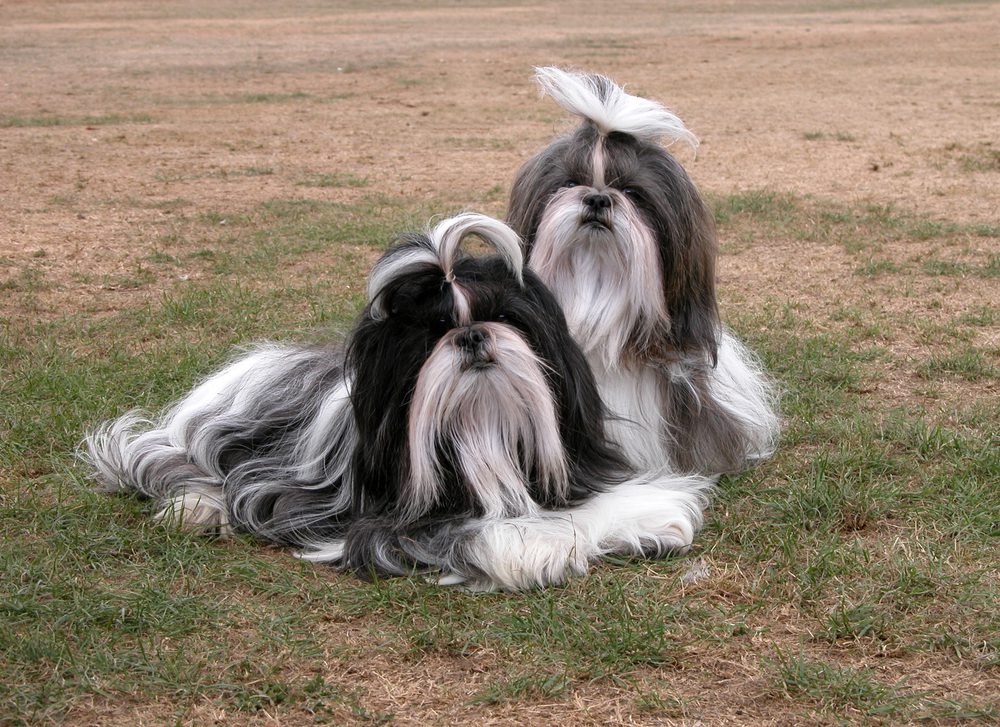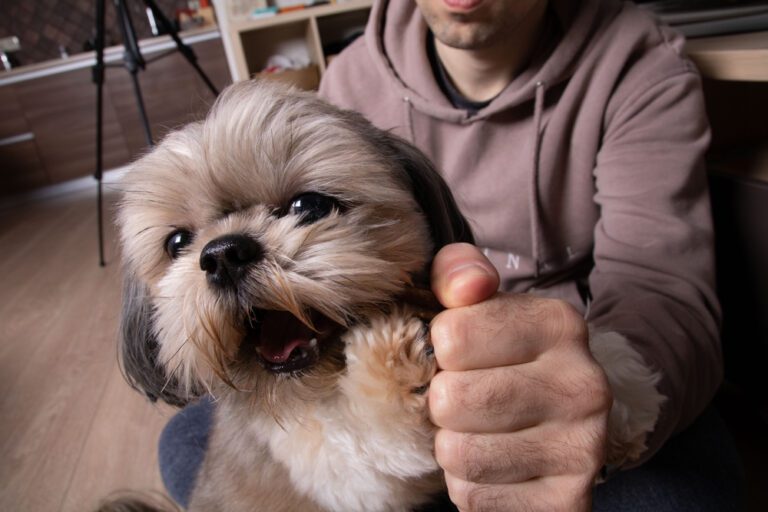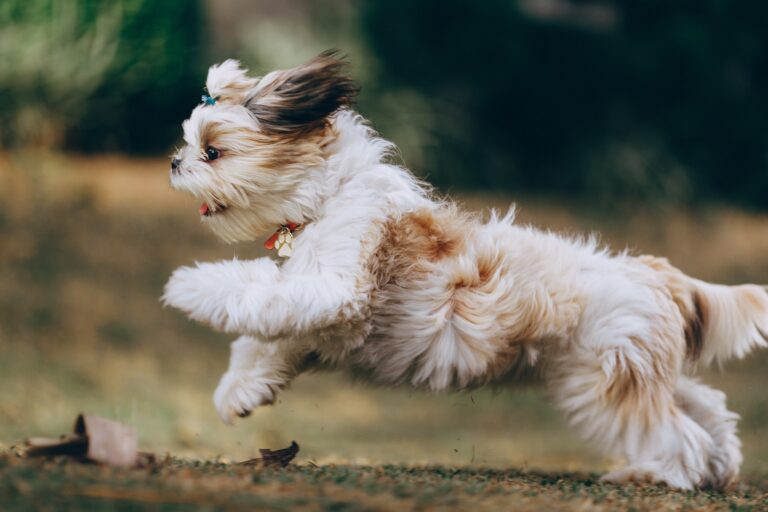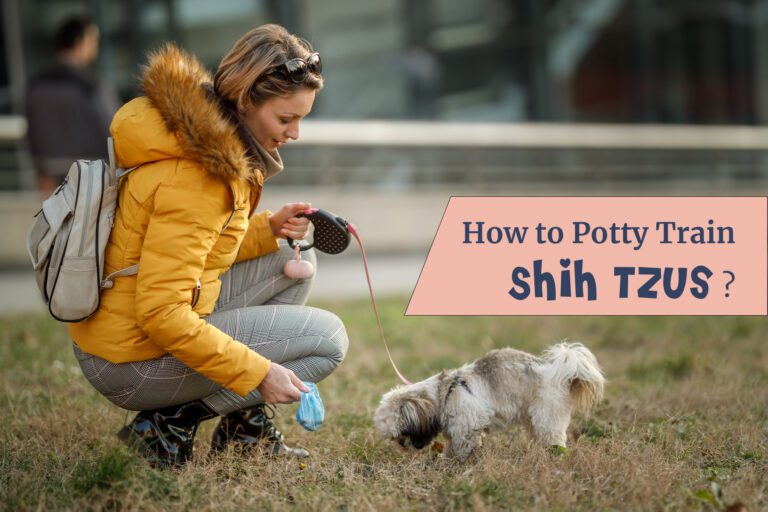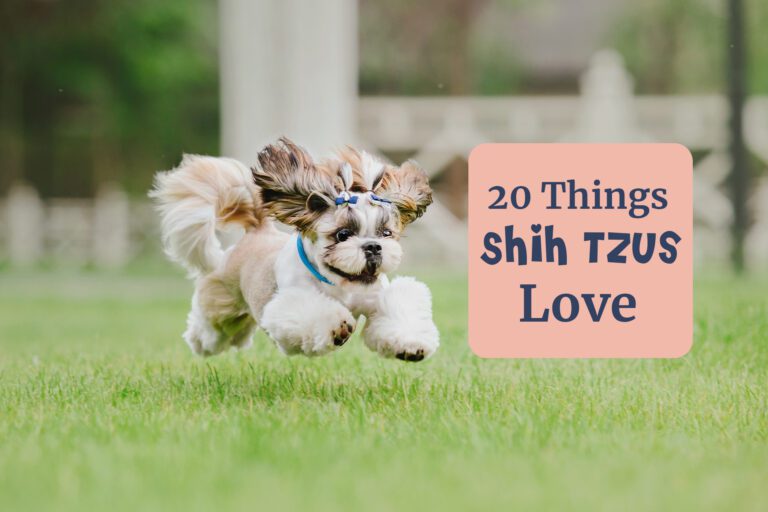Calming Your Shih Tzu: Strategies for Aggressive Behavior
You adore and calming Your Shih Tzu, but their occasional aggressive behavior could use gentle navigation. Don’t fret – you are not alone, and the route to tranquility is closer than you imagine. Welcome to our comprehensive guide, ‘Mastering the Art of Calming Your Shih Tzu: Strategies for Aggressive Behavior.’ This piece will walk you through identifying the root causes behind your furry friend’s aggressiveness and deliver strategies to counter them effectively.
By its end, you will have all the tools to tame those random growls or snipes, ensuring a peaceful coexistence between you and your Shih Tzu. Mellowing out your Shih Tzu is not a test of wills but a journey of understanding and adaptation that leads to an even stronger bond. So buckle in, and let’s transform aggression into affection!
Understanding Aggressive Behavior in Shih Tzus
Shih Tzus can exhibit aggressive behavior under certain circumstances, like any other dog breed. Although Shih Tzus are generally known for their friendly and playful demeanor, they can also become aggressive when they feel threatened or uncomfortable. This aggression often manifests in growling, snapping, or biting. It’s important to remember that aggression is not a personality trait but a reaction to specific situations or stimuli.
Understanding the reasons behind your Shih Tzu’s aggressive behavior is the first step towards addressing it effectively. Just like humans, dogs have unique personalities, likes, and dislikes. What might seem like random aggression might be a response to a specific trigger causing your pet distress. Recognizing and understanding these triggers can help you manage and mitigate your Shih Tzu’s aggressive behavior.
Aggression in Shih Tzus can also be a sign of underlying health issues. Pain or discomfort, especially chronic, can make your pet more irritable and prone to aggression. If your Shih Tzu’s aggression is accompanied by other worrying symptoms like loss of appetite or lethargy, it’s advisable to consult a veterinarian to rule out health problems.
Why does your Shih Tzu act aggressively?
Your Shih Tzu may act aggressively to respond to specific triggers or situations it finds threatening or uncomfortable. This could be anything from a loud noise to the presence of a stranger. Understanding why your Shih Tzu is acting aggressively is vital to managing its behavior effectively.
Aggression can also indicate underlying health issues, especially if accompanied by other worrying symptoms. Pain or discomfort can make your pet more irritable and prone to aggression. If you suspect that your Shih Tzu’s aggression might be health-related, it’s advisable to consult a veterinarian.
Remember, aggression is not a personality trait but a reaction to specific stimuli or situations. By understanding the reasons behind your Shih Tzu’s aggression, you can take steps to manage it effectively and ensure a peaceful coexistence.

Signs your Shih Tzu’s aggression is beyond control
While most cases of aggression in Shih Tzus can be managed with the strategies discussed above, there are instances when professional help might be needed. If your Shih Tzu’s aggression is causing harm to itself or others, it’s time to consult a professional. This could be a veterinarian, a certified dog behaviorist, or a professional dog trainer.
Other signs that professional help might be needed include sudden changes in behavior, aggression that persists despite your best efforts to manage it, and aggression that is accompanied by other worrying symptoms like lethargy, loss of appetite, or changes in toilet habits.
Seeking professional help doesn’t mean you’ve failed as a pet owner. On the contrary, it shows that you’re committed to ensuring your pet’s well-being and are willing to do whatever it takes to help it lead a happy and healthy life.
Common triggers for aggressive behavior in Shih Tzus
Uniqueness and Common Triggers
Every Shih Tzu is unique, as are the triggers that can lead to aggressive behavior. Some common triggers include fear, territoriality, possessiveness, and pain or discomfort. Fear aggression can occur when your pet feels threatened or scared. Loud noises, new environments, or unfamiliar people or animals can trigger this. Territorial aggression, on the other hand, happens when your Shih Tzu feels its space is being invaded. It can be its bed, crate, or even the house if it’s overly protective.
The Role of Possessiveness in Shih Tzu Aggression
Possessiveness can also trigger aggression in Shih Tzus. Your pet may become aggressive when its toys, food, or other possessions threaten it. This form of charge can be directed towards other pets or even humans. Lastly, as mentioned earlier, pain or discomfort can also lead to attack. If your Shih Tzu is acting more aggressive than usual and there’s no apparent trigger, it might be a good idea to consult a veterinarian.
Managing Shih Tzu Aggression
The key to managing these triggers is observation and understanding. With time, you’ll be able to identify what triggers your Shih Tzu and take steps to avoid or handle these situations. Remember, it’s not about punishing your pet for being aggressive but helping it feel safe and comfortable.
Training your Shih Tzu to be less aggressive
Training your Shih Tzu to be less aggressive involves obedience training, behavior modification, and positive reinforcement. Basic obedience training can help your pet learn to control its impulses, while behavior modification can address specific triggers for aggression.
Positive reinforcement, rewarding your pet for good behavior, is a powerful tool for managing aggression. With time, your Shih Tzu will learn to associate calm behavior with rewards and will be more likely to behave calmly in similar situations.
Being patient and persistent in training is essential, as behavior change takes time. You can train your Shih Tzu to be less aggressive and more relaxed with the right strategies, a supportive environment, and patience.
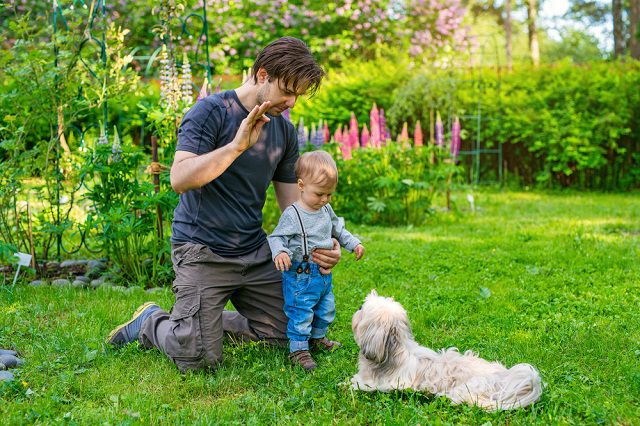
Practical strategies for calming your Shih Tzu
Once you’ve identified the triggers for your Shih Tzu’s aggression, you can start implementing strategies to manage it.
Training and Techniques
One of the most effective ways to calm an aggressive Shih Tzu is through training. Basic obedience training can help your pet learn to control its impulses and behave appropriately in different situations. You can also use specific training techniques to address your pet’s aggression triggers. For instance, if your Shih Tzu is aggressive towards strangers, you can use socialization training to help it become more comfortable around new people.
Distracting Shih Tzu Aggression
Another strategy is distraction techniques to divert your pet’s attention from the trigger. If your Shih Tzu becomes aggressive when it sees another dog, for instance, you can use a favorite toy or treat to distract it and redirect its attention. With time, your pet will learn to associate the presence of other dogs with positive experiences, reducing aggression.
Minimizing Aggression Triggers
Creating a safe and comfortable environment for your Shih Tzu can also help reduce its aggression. Ensure your pet has a quiet and cozy space to retreat when it feels overwhelmed or threatened. Avoid exposing your pet to stressful situations as much as possible, and ensure it has plenty of opportunities to relax and unwind.
The role of diet and exercise in managing aggression
Diet and exercise play a crucial role in controlling aggression in Shih Tzus.
The Impact of Nutrition
A balanced and nutritious diet can help keep your pet healthy and reduce the chances of health-related aggression. Some studies suggest that certain ingredients in dog food, like artificial colors and flavors, can contribute to hyperactivity and aggression. Opting for natural, high-quality dog food can help manage your Shih Tzu’s aggressive behavior.
Easing Shih Tzu Aggression through Exercise
Regular exercise can also help reduce aggression in Shih Tzus. Exercise provides an outlet for your pet’s energy and helps reduce stress and anxiety, which can trigger aggression. It also stimulates the production of serotonin, a hormone that promotes happiness and well-being. Regular walks, play sessions, and mental stimulation can all contribute to a calmer, happier Shih Tzu.
While diet and exercise are essential, they are not substitutes for proper training and behavior management. They should be part of a comprehensive strategy to manage your Shih Tzu’s aggression, alongside training and environmental modifications.
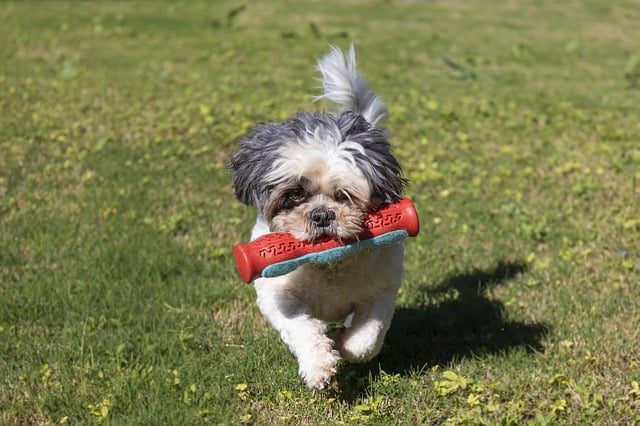
Harnessing the power of positive reinforcement
Positive reinforcement is a powerful tool for managing aggression in Shih Tzus. This training method involves rewarding your pet for good behavior encouraging it to repeat that behavior in the future. You can use treats, toys, praise, or anything else your Shih Tzu finds rewarding as favorable reinforcement.
For instance, if your Shih Tzu tends to be aggressive around other dogs, you could reward it with a treat every time it behaves calmly in the presence of another dog. Over time, your pet will associate calm behavior with rewards and will be more likely to act calmly in similar situations.
It’s important to remember that positive reinforcement should be immediate and consistent. The reward should be given immediately after the desired behavior, and the training should consistently reinforce the behavior effectively. Being patient and persistent is crucial, as behavior change takes time.
Conclusion
Aggressive behavior in Shih Tzus can cause concern, but it can be effectively controlled with understanding and appropriate management strategies. The key is to identify the triggers for your pet’s aggression and implement strategies to manage these triggers. Training, diet, exercise, and positive reinforcement can all play a role in calming an aggressive Shih Tzu. Professional help might sometimes be needed, and there’s nothing wrong with seeking it.
Remember, managing your Shih Tzu’s aggression is not a test of will but a journey of understanding and adaptation. By taking the time to understand your pet’s behavior and needs, you can help it lead a happier, healthier, and calmer life.
.

